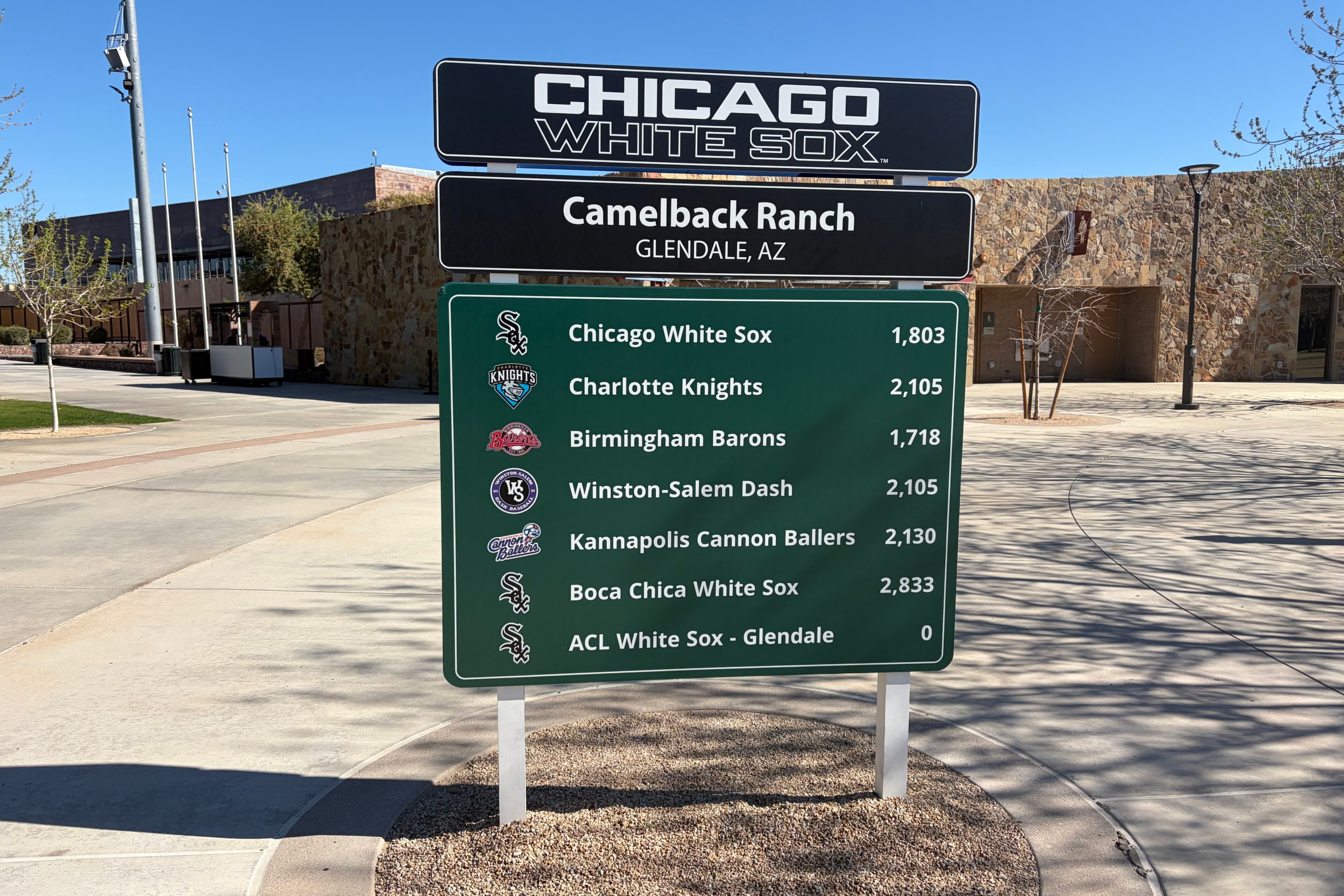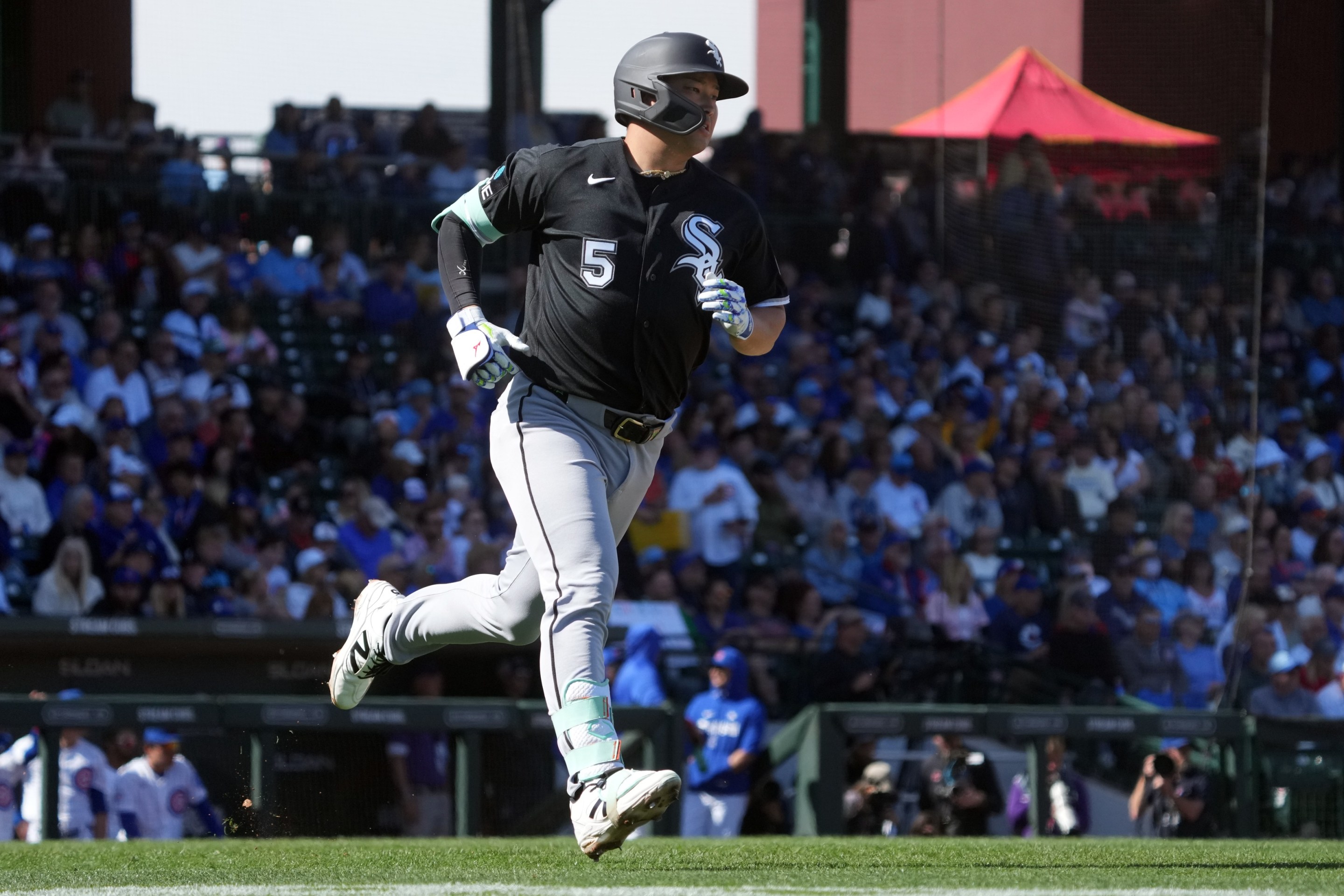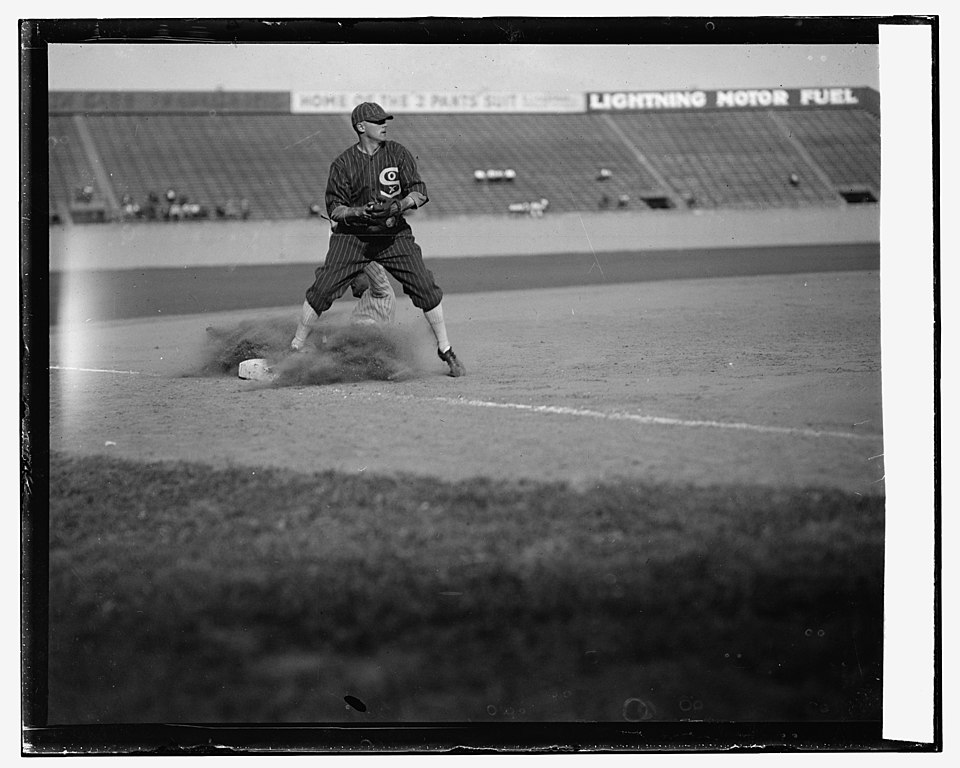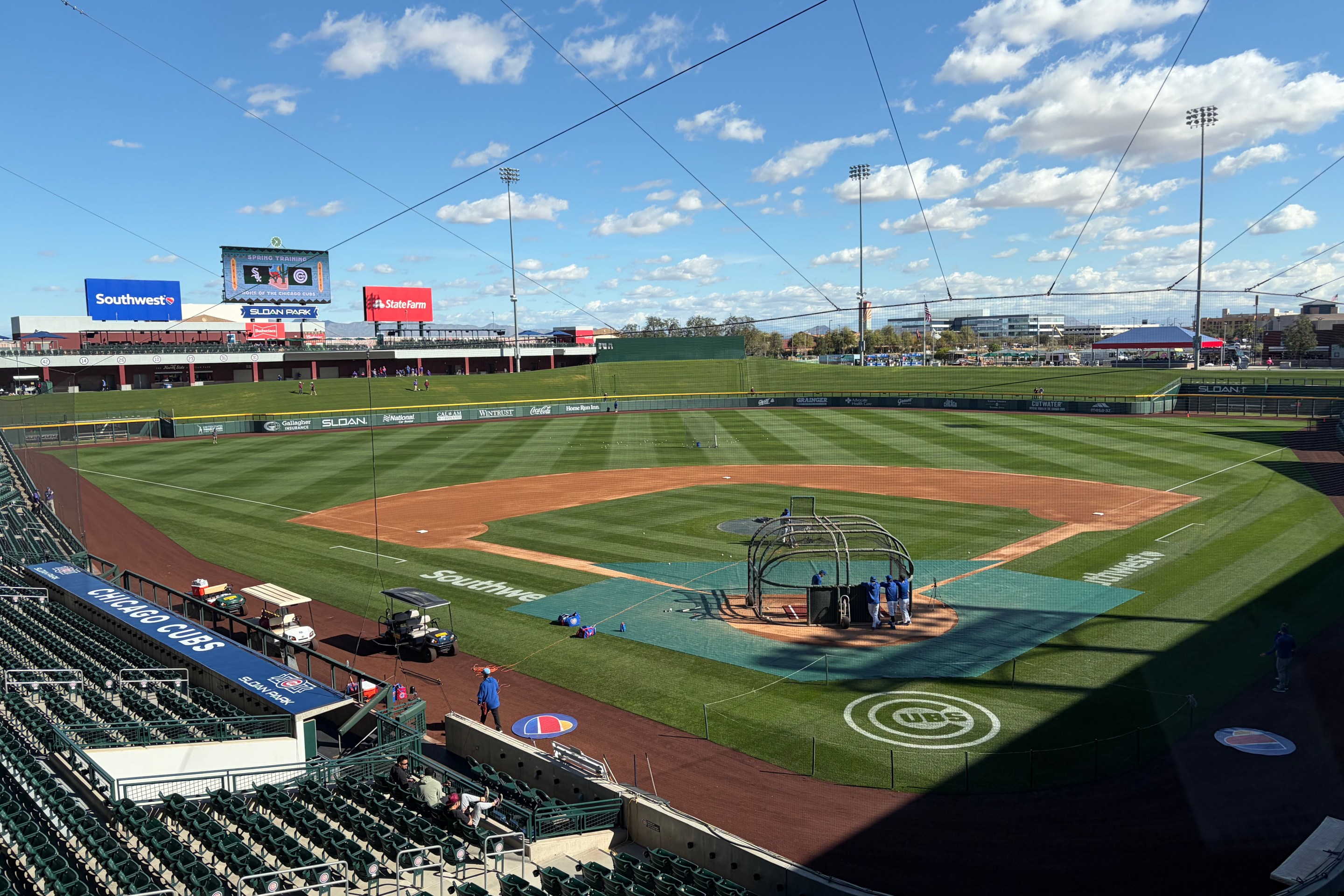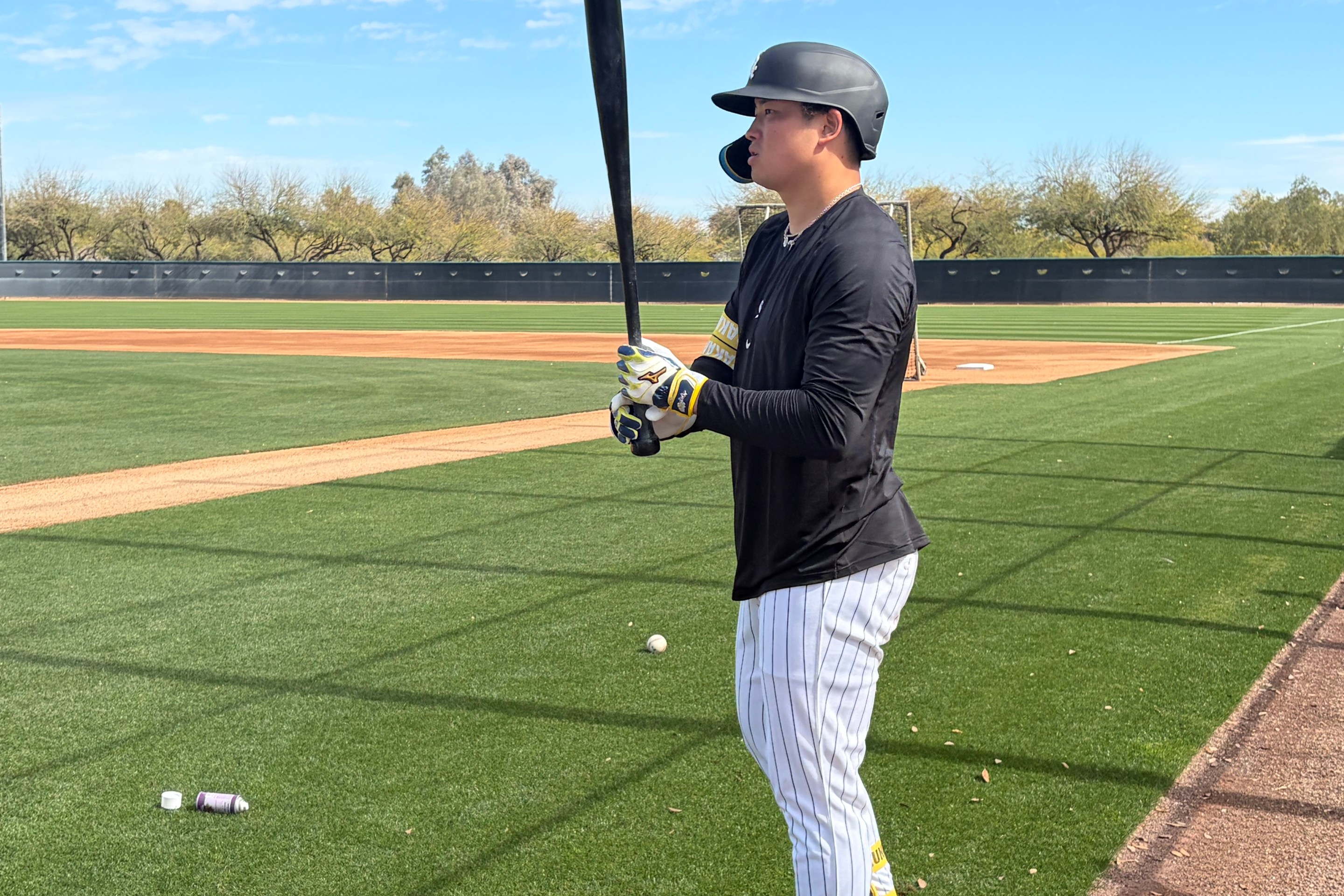With all due respect to Mike Wright, Jacob Lindren, Kade McClure, Bennett Sousa, Kyle Kubat, Danny Dopico, Alex McRae, Kodi Medeiros, Ryan Burr, Tayron Guerrero and Felix Paulino, the structural necessities of the White Sox pitching staff will finally emerge in Cactus League play this afternoon when Lucas Giolito takes the mound against the Texas Rangers.
(The game will be streamed on the White Sox's website and social platforms. Here's the entire broadcast and streaming schedule, if you hadn't seen and saved it already.)
It's fitting that Giolito will lead the way, and not just because he's the presumptive Opening Day starter. By at least one projection system, he's supposed to be the best starter in all of baseball. The White Sox maybe don't need that kind of quality from Giolito, but a lot of their hopes rest on Giolito resembling something close to that.
Giolito is acquainted with massive expectations of a sort. He was one of baseball's most-hyped prospects when the Nationals called him up in 2016. Mechanical issues robbed him of velocity and command and sent his stock plummeting, but after Cy Young finishes in each of the last two seasons, the latter of which featuring a no-hitter and a statement start in his first taste of the postseason, the hype is higher than ever.
Giolito told James Fegan that he's comfortable with the burden, if only because he's breaking it down to a much simpler goal of throwing 200 innings. If he throws 200 innings -- especially during a season where workloads might be lessened after playing just 60 games in 2020 -- everything else is going right for him. Within that goal are smaller imperatives, like conditioning to avoid the minor injuries that have cost him two weeks here and there, and trying to find his breaking balls earlier in starts.
Nothing about this is easy, because his job requires facing people who are tasked with making it hard. Nevertheless, Giolito makes it all sound doable, and stories like these are always easier to ingest when the player has already made and sustained drastic turnarounds, rather than somebody who is always turning corners into dead ends.
With Giolito's staying power comes the concerns about whether the White Sox can or will lock him down to stick around past 2023, when he's set to reach free agency. We've previously discussed that here, I've previously stated my belief that it'd cost the White Sox nine figures to do so, and nothing about Fegan's story sways me from that.
“There haven’t really been discussions about an extension, which is fine,” Giolito said. “I think the organization knows that I value myself. I know kind of what I’m worth.”
Giolito’s exposure to the business side of baseball began at 17, when the status of his injured elbow became a negotiation point in the draft, and asserting his value became essential. He credits a close relationship with his agent, Ryan Hamill, for building out his understanding of the sport’s landscape. Giolito’s uncle, Robert Giolito, is one of the prominent labor attorneys in the country and represented the Screen Actors Guild in the SAG-AFTRA merger. He cited both as meaningful influences toward his belief in being an actively engaged member of the MLBPA.
“There’s no way that I wasn’t going to get into the union stuff, really caring about those kinds of issues where we’re at,” Giolito said. “I’ve seen some things over the last few years. I’ve learned a lot.”
During the #108Fest, I asked Rick Giolito, Lucas' dad, whether it was true that Lucas signed with the Nationals only after they met his draft bonus demands 30 seconds before the deadline. Rick said it was 20 seconds.
Given this context -- as well as the upcoming CBA negotiations and the Seattle Mariners' role in inflaming passions -- I'm not expecting swift progress on this front, even if Leury García and Aaron Bummer will tell you that the spring is a particularly fertile period for extensions.
I am expecting the uncertainty to make some White Sox fans uncomfortable because it can exploit the deep-seated abandonment issues that run through some portions of the base. I'd recommend fighting those feelings, because a Giolito extension is not a cure in and of itself. The White Sox signed Chris Sale to one of baseball's best contracts in 2013, only for some fans to start panicking after 2015 that Sale would want to leave the Sox after 2019. Sure enough, the White Sox traded him after 2016.
The White Sox front office hasn't helped, what with Rick Hahn insisting that other team-friendly extensions count as "spending the money." It doesn't, at least in a way that benefits the consumer. The extensions for and subsequent trades of Sale, Jose Quintana and Adam Eaton showed that such early-career commitments are closer to palliative care, at least until certain dynamics change.
Said dynamics can change. I'd rule out the White Sox spending money that makes them uncomfortable, because this was the time to do it, and they passed. However, we don't know what the White Sox's budget looks like after consecutive postseason appearances because the White Sox have never made consecutive postseasons in their 120-year-old history, so maybe the Sox will be in a better position to meet his number. Or, perhaps the White Sox's fresh attempts at developing pitchers pays off, making Giolito's excellence less necessary to retain, and there will be more urgent ways to direct those resources. There are lots of ways this can go.
There's also the chance that nothing changes. That's just not worth detailing, whether it's unnecessary fearmongering, or just because we already know how to handle that. The Sale era was a lot of fun if you could isolate the excellence and enjoy it without worry over what may come, because we weren't bereft of opportunities to dwell on the greater failure. Those lessons can be applied to Giolito at this juncture, except without the "greater failure" part. His excellence should have more company.
(Lucas Giolito portrait by Carl Skanberg)

